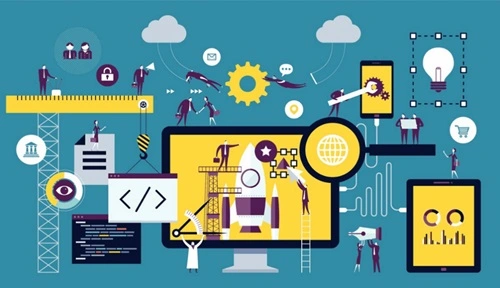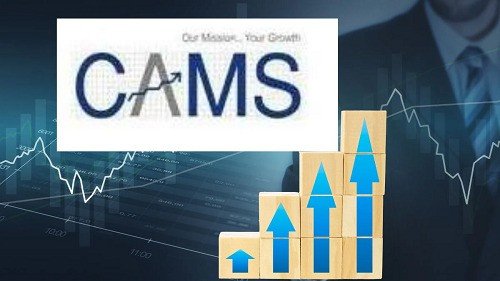As the name suggests, you can already guess that a Management Information System or MIS has something to do with managing information or anything like that. Right? Well, you’re on the track, it actually is a system that is put into place to control, analyze, spread, or visualize information, which ultimately helps in the decision-making process of an organization or a company. And if you want to dive deeper into what’s so good and not so good about this MIS system, then keep on reading. Here we will be going over the main advantages and disadvantages of Management Information Systems, so, let’s get going.

Advantages of MIS
1. Supercharging Decision-Making
Alright, let’s jump straight into how MIS completely revamps your company’s decision-making process. You see, the very goal of management information systems (MIS) is to extract meaningful data from disparate sources and present it in an understandable format. The goal here is not merely data accumulation, but rather the early detection of trends, problems, and optimal courses of action, you know?
2. Maximizing Effectiveness To the Max
Another pretty apparent and major advantage of MIS? Simply put, if you have MIS in action, your company’s productivity will skyrocket. Data collection, number processing, and report generation are all examples of the repetitive tasks that MIS automates to save a whole lot of time, and you’ll really value that later down the line. As you can guess already, you know, with fewer mistakes and more consistency, your team can concentrate on the important things.
3. Raising the Level of Communication
See, with such systems, it is not just the data management thing that shines the most, nah, you’ll certainly like the communication enhancement factor of it too. You see, it is not that hard to understand that when all of your data is in one place, departments can finally stop squabbling over who gets what and start working together, you know?
4. Mastering Data Management
Do you have access to data? MIS verifies that it is not idle. With MIS, your data storage goes from disorganized to well-organized by consolidating it all in one place, you know? Trust the insights you take out to make those critical judgments since it’s all about quick access and rock-solid data integrity. Finally, a path to transparent, trustworthy reporting, which simply translates into one thing: goodbye, data disasters.
5. On-Point Performance Tracking
And another thing that such a system does really well is the tracking part which is super helpful in getting an idea of how your business is performing, you know? And sure, using MIS, one can identify patterns and weak spots in data such as sales and production statistics. That’s how supervisors have the opportunity to establish standards, encourage efficiency, and offer praise when it is due.
6. Optimizing Resources
For all your resource management needs, MIS is the one to call. Predicting your next major move is part of it, not simply tracking resources. Is next quarter’s production ramp-up necessary? Your assets have already been allocated by MIS after they crunched the statistics. If you want to stay ahead of the competition at all times while cutting costs, this is the method to do it.
7. Strategic Planning Power-Up
The term “strategic planning” is more than just a term used in executive meetings when you have MIS. Actually, when you have the data about what’s going on in an organization, and MIS is there to back it up, it is much easier to plan things and come up with a better strategy to skyrocket the growth down the line. That’s one way to look at it.
Disadvantages of MIS
1. That Pricey Initial Setback
See, you have to pay a lot of money right away for the software, the tools, and teaching your team how to use it. The money keeps going down the drain with regular system updates and the expected troubleshooting. These costs aren’t just problems for small businesses that are watching their budgets, they could be kinda deal-breakers.
2. It’s a Bit Complex
An MIS isn’t something you can just plug in and use, you know, you need to know a lot about technology to handle it. If your team isn’t up to speed, they’ll have to learn quickly and will have to pay a lot for training. It’s also more likely that something will go wrong with a system that is too complicated, which can cause problems or even mistakes that can make things difficult down the line.
3. Tech-Dependent Much?
If you depend too much on your MIS, your tech might be able to do whatever they want. System crashes or software that is too old can stop your business in its tracks. Also, cybercriminals will be more likely to target you if you depend on technology a lot, that’s a risk in this digital age we live in, right?
4. Not Everyone’s on Board
If you switch to an MIS, your current processes will have to be changed, and let’s just say that not everyone will like it. When your team fights back, the whole process can get held up, making what should be a smooth transition into a battleground, and you wouldn’t like that at all. You need a workaround for that.
5. Garbage In, Garbage Out
Don’t forget that the information you give a MIS is what makes it work. When you mess up the input, the result will be of similar quality, that’s why we said that if you put the garbage in it, it’ll surely pump out the garbage as a result.
Conclusion
That’s all for now. See, it is somewhat of a necessity these days to have a Management Information System in place, and that’s why you see so many companies out there utilizing MIS. However, the effectiveness of MIS mainly depends upon how it is being utilized and what big decisions are being made on the basis of the data from such a system. That’s how you judge its effectiveness.

